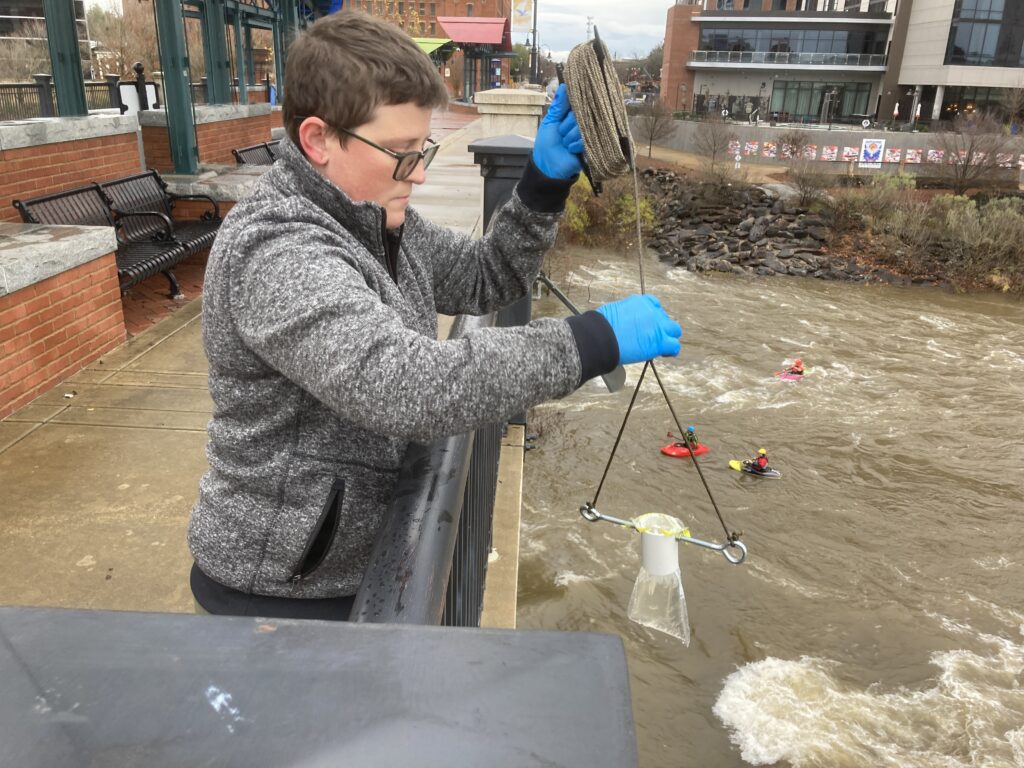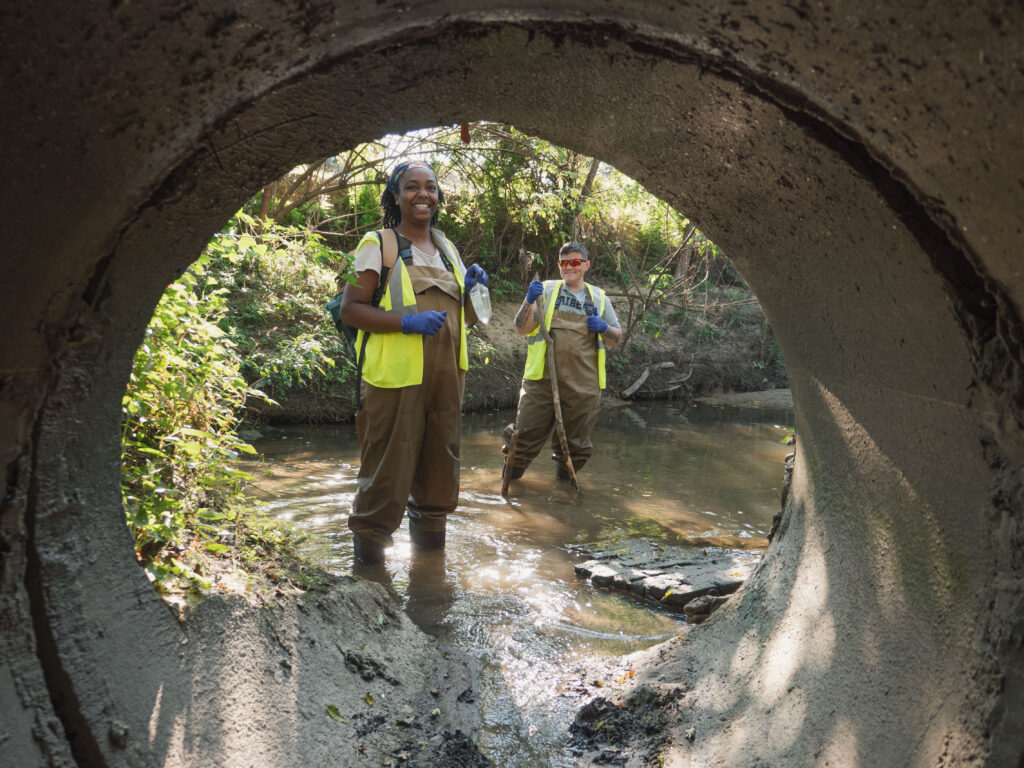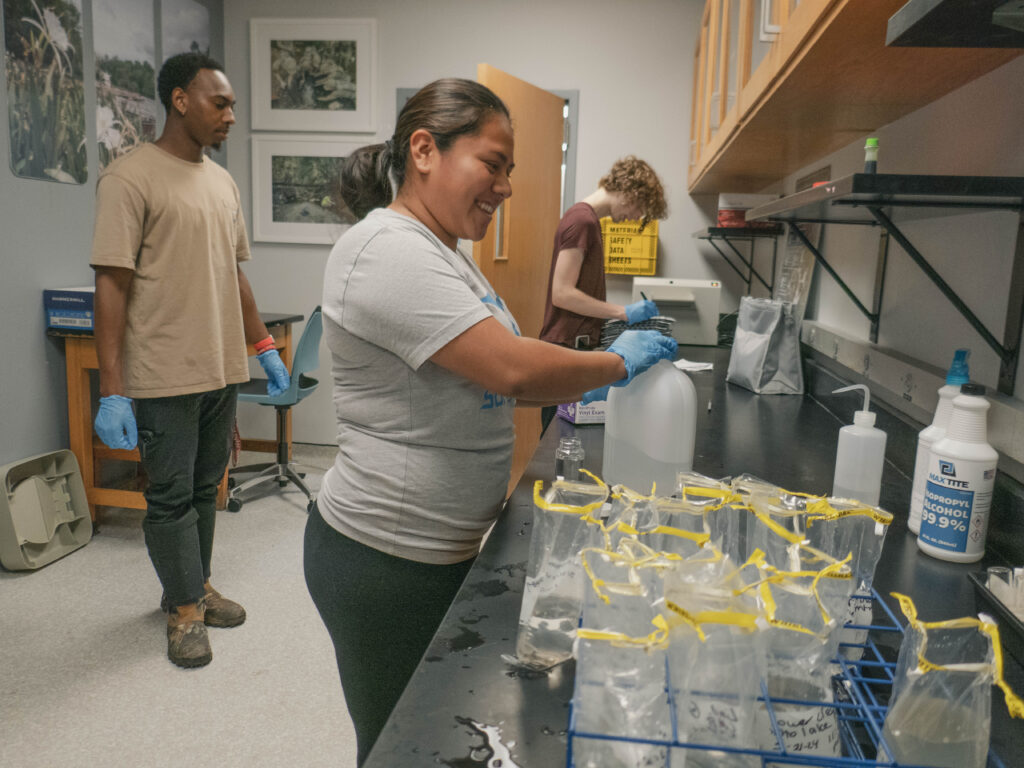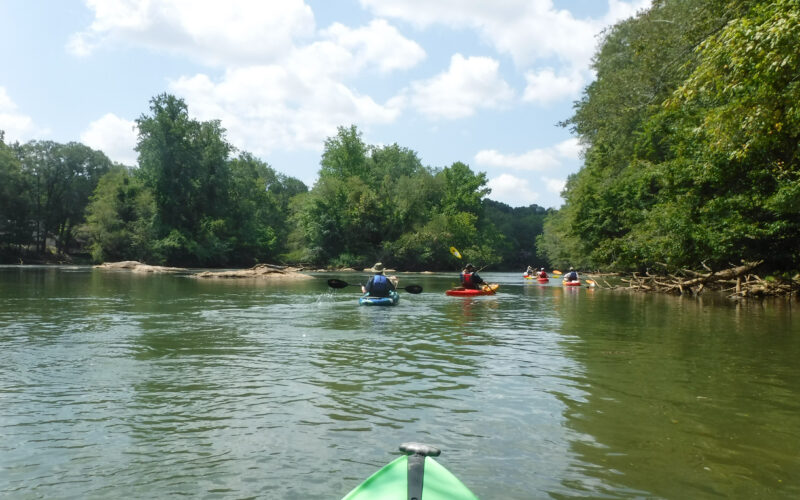Since 2017, Chattahoochee Riverkeeper (CRK) and our partners at the Southern Environmental Law Center have pushed for stronger water quality measures to protect the right to drinkable, swimmable, and fishable water for people on the river in Columbus, Ga. and downstream in Lake Eufaula.
In December, a Georgia court reversed a decision affecting the operation of the Columbus sewer system along the Chattahoochee River. The court sided with Columbus Water Works (CWW), stating that the Georgia Environmental Protection Division (EPD) wrongfully issued the utility’s 2020 permit because EPD did not conduct an adequate analysis before adding a new limit on the amount of E. coli bacteria discharged to the river.

Columbus boasts the longest urban whitewater rafting course in the world, making the city a destination for paddlers and adventure-seekers. The city also relies on a combined sewer system. During heavy rainfall, the sewer system can overflow and release both stormwater and minimally treated sewage into the Chattahoochee River. These overflows are primarily released through pipes underwater and out of sight within the whitewater course, and they can contain harmful pathogens that threaten public health and aquatic ecosystems.
Water samples collected by CRK staff from overflowing CWW outfall pipes have periodically shown unsafe levels of E. coli, which is an indicator of sewage pollution and the presence of harmful pathogens.
With this recent court decision, Columbus has the only remaining combined sewer system in the State of Georgia that does not have limits on the amount of E. coli in the overflow discharge.
The combined sewer system is managed by a permit issued by the Georgia Environmental Protection Division, which is renewed every five years. CWW was issued its first ever permit for the Combined Sewer System in 1992. From 1993 to 1995, Combined Sewer Overflow (CSO) control facilities were designed and constructed and in 1998, the post-construction/Phase One CSO permit issued. Notably, no limits on harmful bacteria were placed in the permit.
From 2004 to 2010, EPD negotiated with CWW over permit requirements and bacteria limits. Ultimately, due to CWW’s ongoing opposition, the bacteria limits were removed from the proposed permit.
In 2012, the Columbus Whitewater Course opened to the public.
In 2015, EPD provided CWW with proposed draft CSO permit that once again contained limits for harmful bacteria. Even with the popular Whitewater Course now drawing thousands of visitors every year, CWW opposed bacteria limits and denied the need for increased instream monitoring of water quality.
In 2017, EPD published a draft permit for public comment with bacteria limits. As part of the public notice process, CRK submitted comments and engaged with CWW, EPD, and U.S. Environmental Protection Agency (EPA) to discuss the draft permit and emphasize the need for the proposed bacteria limits.
The new permit was issued in 2020 and in 2021 CWW filed a legal challenge seeking to remove the bacteria limits. CRK, represented by Southern Environmental Law Center, intervened in support of EPD’s case before the Office of State Administrative Hearings. In December 2024, following a series of appeals, the administrative law judge held that EPD wrongfully issued the 2020 permit because EPD did not conduct an adequate “reasonable potential analysis,” before adding new bacterial limits and rejected EPD’s reliance of a categorical determination that all publicly owned treatment works have the reasonable potential to cause or contribute to instream water quality standard violations for bacteria. Instead, the judge ruled, EPD must conduct an analysis based on quantitative data to provide evidence that the CSOs have a reasonable potential to contribute to water quality excursions.
The next application cycle for a 5-year permit will begin in April of this year, and despite the recent setback, CRK is ready to continue pushing for stronger measures to protect the safety of people recreating on the Chattahoochee River and the Columbus Whitewater Course.
Since 2017, spurred on in large part by this permit appeal, CRK went from nearly zero community engagement in Columbus to a laboratory partnership with Columbus State University, two full-time staff members who live and work in the community (Ashley Desensi and our newest team member Vanisha Strahota) and more than 5,000 students from Columbus-area schools served aboard our West Point Lake Floating Classroom.





